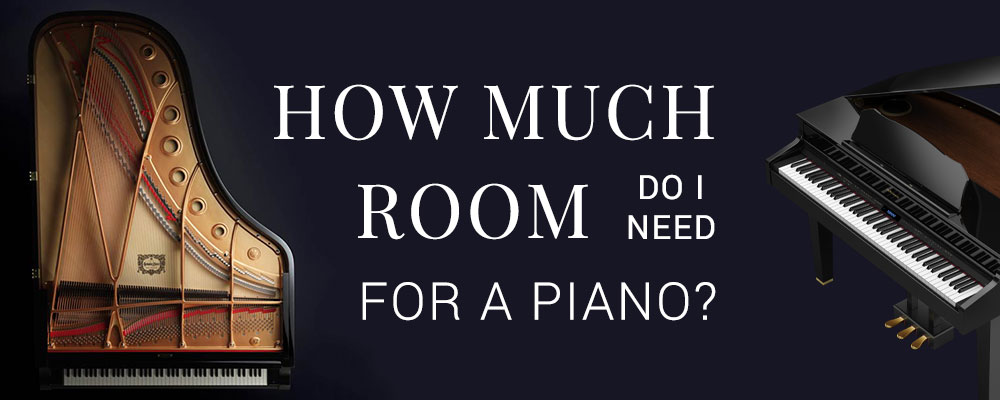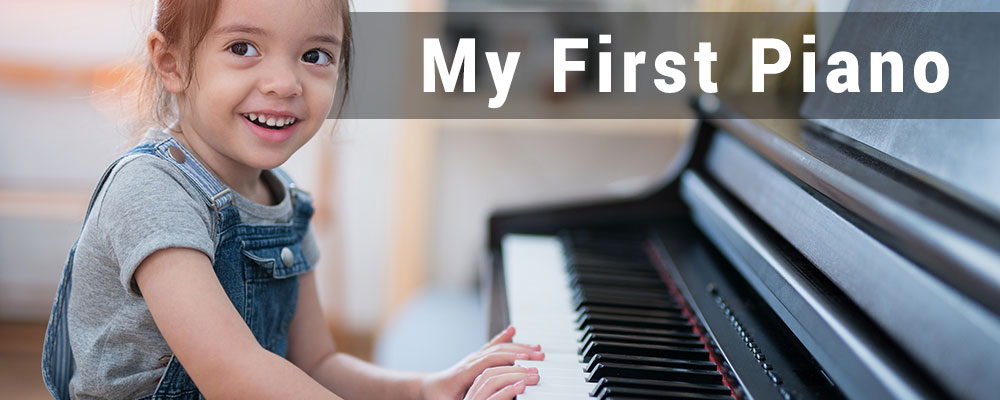
How Much Room Do I Need for a Piano?
This is probably one of the most common concerns we hear from first-time piano shoppers. Of course, the answer varies as much as the pianos we offer do. Still, with a little creativity and some helpful tools, you might be surprised to discover how easily a piano can fit into your home!

Practice Makes… Perfect?
 No doubt you’ve heard the old adage, “Practice makes perfect.” …but does it really? As the daughter of a North Carolina music teacher, I have seen first-hand that there is no such thing as perfection in music. Of course practicing is vital to the mastery of any discipline, but – as a musician and a music teacher’s daughter – I would also argue that the pursuit of perfection can be dangerous (and even damaging) for students. Perhaps it’s time to modify “the old adage” and put a little less pressure on ourselves – especially as we simultaneously develop our musical skills and our affection for music education.
No doubt you’ve heard the old adage, “Practice makes perfect.” …but does it really? As the daughter of a North Carolina music teacher, I have seen first-hand that there is no such thing as perfection in music. Of course practicing is vital to the mastery of any discipline, but – as a musician and a music teacher’s daughter – I would also argue that the pursuit of perfection can be dangerous (and even damaging) for students. Perhaps it’s time to modify “the old adage” and put a little less pressure on ourselves – especially as we simultaneously develop our musical skills and our affection for music education.

Looking for My First Piano
Everybody wants a good piano. Unfortunately, pianos can be expensive. That leaves most of us with a value judgement to make. We want the best piano we can get, but we want to spend as little as possible to get it! What makes matters worse is that we can find countless brands of pianos at just about every price imaginable and finding the best fit for our needs and our budgets can be surprisingly difficult! Luckily, the owner of our company is a classical pianist himself – and a family man. He understood the need for a very high quality – yet low cost – option for beginner players, enthusiasts and home owners. …and, luckily, he found a company that is making something you can be proud to call “My First Piano!”

The Truth About German Handcrafted Pianos

Early pianos each had their own distinctive features. Early German pianos had sustain pedals. Early Viennese pianos had black naturals and white sharps (pictured here).
Do you know the truth about German handcrafted pianos? Though the piano originated in Italy around 1704, it didn’t arrive with any kind of fanfare. In fact, Cristofori himself didn’t even consider it a new instrument. We know this by the name Cristofori gave his invention: “Clavicembalo col Piano e Forte” (“Harpsichord with Soft and Loud” in English). It wasn’t until instrument makers in England, Austria and Germany began building their versions of Cristofori’s “newfangled harpsichord” that composers – and music lovers around Europe – began thinking of “The Soft” (“The Piano”) as a new and unique instrument. A German organ builder named Gottfried Silbermann added a mechanism to Cristofori’s design and began marketing his pianos with a revolutionary new feature – what we know today as the modern “sustain pedal.” He even introduced Bach to the piano and – though Bach was slow to adopt the new instrument – by the mid-1700s, he was selling pianos for Silbermann in Europe. Many piano builders in Vienna were famous for building pianos with black “naturals” and white “sharps” (the opposite coloring we use today) and Mozart himself wrote countless pieces on these early pianos. With every new industrial development, the piano became more unique, more powerful and more beloved around the world.
With such an incredible history centered around Europe (and Germany specifically), it’s no wonder that modern German piano builders still have a reputation for producing great-playing, great-sounding instruments. …but – though there is a general impression that some of the best pianos made in the world are made in and around Germany – most people can’t actually name any modern German piano builders. Names like August Forester, Bechstein, Bluthner, Grotrain-Steinweg, Pfeiffer, Ronisch, Steingraeber, and more are virtually unknown to most folks outside of the piano business. In fact, these (and others like them) have a few things in common: They are little known outside of Europe or the piano industry; They are made with high quality European woods and materials; They are very expensive by today’s standards (uprights averaging in the mid-$30,000 range and grands averaging from around $70,000 to nearly $300,000 depending on size). As such, many of these famous German handcrafted pianos are priced beyond most piano buyers’ budgets… and that disparity has opened the door for piano manufacturers who build instruments elsewhere to wrap themselves in the time-tested reputation of “German handcrafted pianos” when their pianos are nothing alike. Over time, this has become a major problem for piano buyers who don’t know the difference.

How to Teach Group Piano Lessons
 As a 20+ year piano industry veteran, I have had the pleasure of working closely with piano teachers, manufacturers, professors, and print music publishers all over the United States. My work has also given me the opportunity to install hundreds of piano labs and provide the necessary training and long-term support for the teachers working with these piano labs. I have seen programs fade and die… and I have seen programs thrive beyond even the wildest expectations. …and – through it all – I have learned what works and what doesn’t. If you’re thinking about adding a piano class to your teaching menu, I hope you’ll find the suggestions below to be very helpful. There’s a lot of bad information on the internet related to group piano teaching, so don’t be surprised if the points I make here contradict what you have seen elsewhere. …and – as always – feel free to contact Riverton Piano Company directly if you need help setting your group piano lessons program on the path to success. That is what we do and we do it very well. Let’s get started.
As a 20+ year piano industry veteran, I have had the pleasure of working closely with piano teachers, manufacturers, professors, and print music publishers all over the United States. My work has also given me the opportunity to install hundreds of piano labs and provide the necessary training and long-term support for the teachers working with these piano labs. I have seen programs fade and die… and I have seen programs thrive beyond even the wildest expectations. …and – through it all – I have learned what works and what doesn’t. If you’re thinking about adding a piano class to your teaching menu, I hope you’ll find the suggestions below to be very helpful. There’s a lot of bad information on the internet related to group piano teaching, so don’t be surprised if the points I make here contradict what you have seen elsewhere. …and – as always – feel free to contact Riverton Piano Company directly if you need help setting your group piano lessons program on the path to success. That is what we do and we do it very well. Let’s get started.

Private Piano Lessons vs. Group Piano Class – Which Works Best?
Until recently, the type of music lessons a piano student received depended heavily upon the type of instrument he or she was learning. Instruments like trumpet, violin, and voice were taught primarily in ensemble settings (with some individual work mixed in). Piano lessons, however, have traditional been solitary experiences between a single teacher and a single student. As technologies have developed, remote teaching tools, digital piano labs and even online piano lesson programs have given piano students who crave an “ensemble experience” a choice. The question is – which is better? Is the traditional “one on one” method truly the best choice? …or are there benefits to a group piano class that can’t be ignored? As a piano retailer with over 30 years of experience, I get this question a lot. …and my answer might surprise you.

What Are Hybrid Pianos?
Broadly speaking, “hybrid pianos” are keyboard instruments made from a combination of electronic parts taken from digital pianos and mechanical parts taken from traditional acoustic pianos. The resulting instruments deliver the convenience and excitement of modern technology-based pianos without sacrificing the nuance and control of a traditional “wood and strings” piano. Though the concept of including electronic parts in acoustic pianos is not new (manufacturers have been doing this with “player pianos” for decades), recent technological developments have made “hybrid pianos” more diverse and popular than ever before. Now, instead of the seemingly binary choice between a technology-based instrument and the traditional piano aesthetic, modern buyers can enjoy both – if they’re willing to make room in the budget. …but what’s so special about a “hybrid piano” and how are they different?

The Arizona Bösendorfer Piano Salon
Selecting one of the finest pianos in the world demands a superb buying experience like no other. That’s why Riverton Piano Company Scottsdale now features the perfect selection space to present and demonstrate one of the largest collections of new Bösendorfer pianos in the world. As Arizona’s exclusive factory representative for Bösendorfer pianos, we take our role in helping you discover and appreciate the unfathomable magic of joining a piano family that stretches through generations of celebrities, leaders, musicians and royalty very seriously. Now we invite you to experience this magic for yourself as you visit our Scottsdale piano showroom. Introducing, the Arizona Bösendorfer Piano Salon.

My First Piano – What You Need to Start Lessons
If you’re reading this, you’re probably like about 90% of our clients. You or someone in your family has decided to begin taking piano lessons, but you don’t have any idea what kind of tool you (or your student) needs to succeed. “Piano Shaped Objects” (or “PSOs”) exist at just about every price point you can imagine – from toy keyboards in the $100-$500 range to artisan concert grands in the hundreds of thousands. There’s a wide field of options and you have no idea (aside from what fits into your budget) what is “right” for you. …but, luckily, you’ve found this blog and I am going to help you understand what is available… and which features you absolutely must have to succeed with piano lessons.

Anyone Can Learn to Play with Follow Lights!
If you’ve ever played Guitar Hero; tried Dance, Dance, Revolution; or followed “the bouncing ball” while singing karaoke, you know how easy it is to rock along with your favorite songs. Now imagine your PIANO can do that! It’s true. With the Yamaha Clavinova CSP and CVP digital pianos, you can “follow the lights” and play your favorite songs without a single lesson! Yamaha CVP and CSP Clavinova digital pianos use special “ Follow Lights” software to light your way through the world’s most popular music from every genre. Just play the note directly under the light when the piano tells you to and Yamaha’s virtual orchestras will back you up as you play! It’s fast, it’s easy and it makes you sound great!




